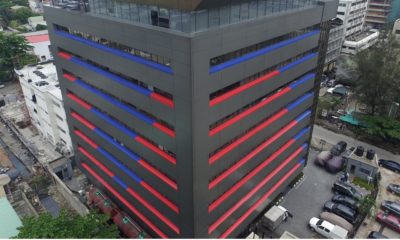- Experts Proffer Ways to Grow Insurance Sector
Mr Ben Ujoatuonu, Managing Director, Universal Insurance Plc, on Thursday said with increased public awareness and prompt settlement of claims by policy holders, Nigeria’s Insurance sector would thrive.
Ujoatuonu, said this at the inauguration of the Retail Insured Family Association of Nigeria (RIFAN), with a theme “Enhancing Insurance Confidence in Nigeria: The Role of Policy Holders” in Abuja.
According to him, Nigeria’s insurance sector has great potential due to its huge population but is best be described as struggling, with less than one million adults having a form of insurance.
He said: “Beyond restoring insurance industry confidence, there is need to further deepen insurance penetration in Nigeria.
“The insurance industry must rise up to exploit Nigeria’s huge population to advantage; for a meaningful result, there should be coordinated approach in creating awareness in the grass root.
“On a broader perspective, synergies should be created between the regulator, operators and aggregators also, schools awareness campaign is another major way to `catch them young’.”
Mr Lawrence Dafiode, Managing Partner, Carmel and Associates, Risk and Management Consultant, who chaired the event, commended the players in the insurance sector, while urging them to do more to drive the sector.
He said: “We can all testify to the facts that the insurance industry in Nigeria has been performing below its potential and expectation.
“While many, at different times, have identified the challenges facing the industry, not much has been done to address them.
“It is for this purpose that I am happy to be part of this occasion as we inaugurate an organisation that aim at improving the performance of the industry by focusing on its retail end.”
Mr Akin Bello, National Chairman, RIFAN, in his address, expressed the association’s continued desire to partner stakeholders in the sector to increase insurance awareness at the grassroots and enhance overall public confidence in insurance.
Bello said: “RIFAN commends the efforts of the insurance industry at various levels, to improve the image of the insurance sector in Nigeria.
“We wish to identify with the National Insurance Commission (NAICOM) for being proactive in seeking partnership with the various states through the new State Insurance Producers (SIP) model.
“RIFAN hereby pledges her commitment to continue to support NAICOM in this direction,” he said.
According to him, RIFAN is registered under the laws of Nigeria as a free association of insurance policyholders in Nigeria with a mission to create awareness, increase public confidence and ensure prompt claims payment.
He said the association was working at having members in all the 36 states of the federation and would leverage a robust information technology platform to guarantee protection of members’ interest.
Mr Rotimi Ayeola, a representative of NAIC, urged the association to also reach out to farmers in the country while carrying out its mandate of public awareness of insurance.
He also expressed NAIC’s desire to support RIFAN in taking care of the policy holders, adding that NAIC would play the role expected of it to drive insurance penetration.
Representatives of Leadway Assuarance Plc, GNI and Veritas insurance all commended the management of RIFAN for taking the bold initiatives and pledged their commitment to support the association in every way possible.

 Forex3 weeks ago
Forex3 weeks ago


 Naira2 weeks ago
Naira2 weeks ago
 Billionaire Watch2 weeks ago
Billionaire Watch2 weeks ago




 Naira2 weeks ago
Naira2 weeks ago




 Naira2 weeks ago
Naira2 weeks ago




 Naira1 week ago
Naira1 week ago




 Naira4 weeks ago
Naira4 weeks ago




 Naira3 weeks ago
Naira3 weeks ago


















